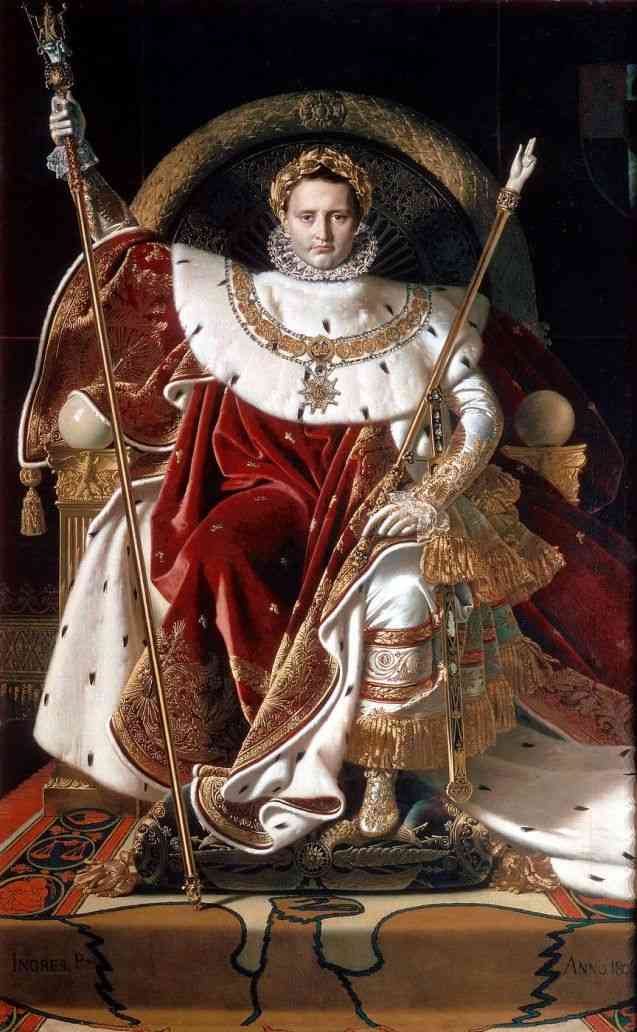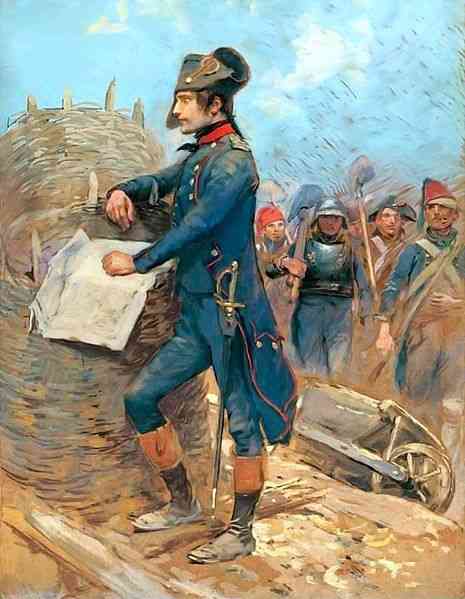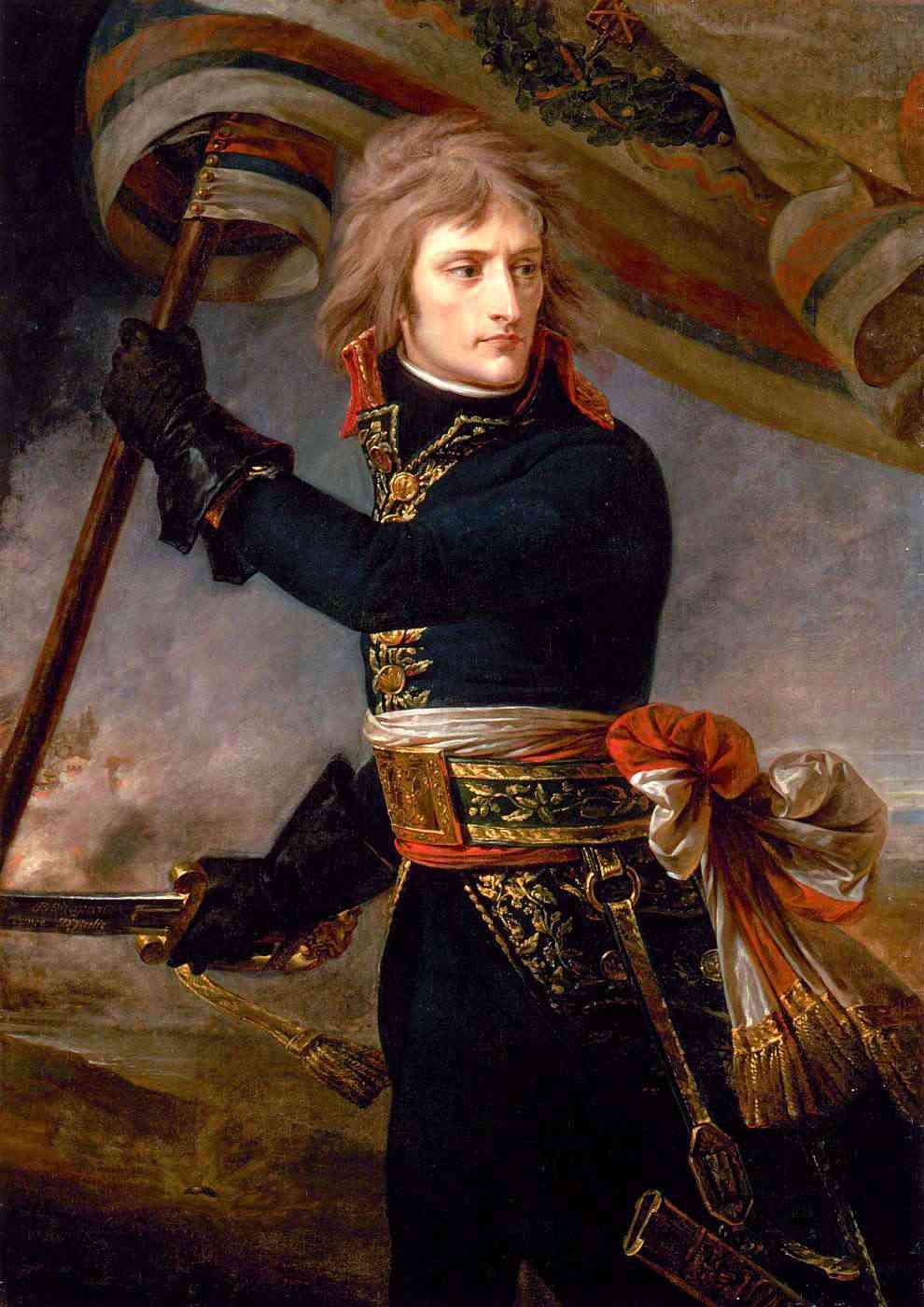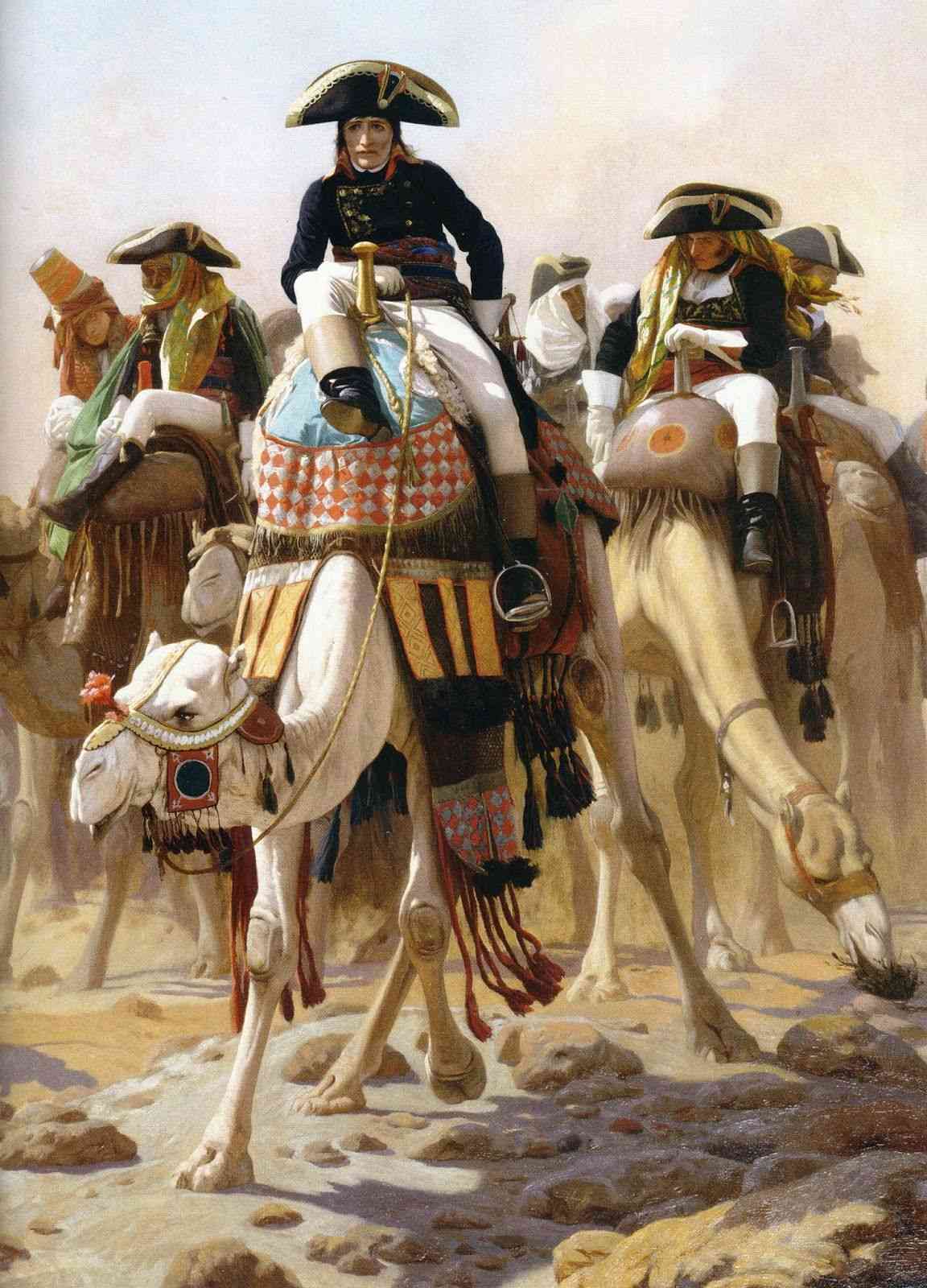The French Revolution and Rise of Napoleon Part 2: Foundation of an Empire
Napoleon rearranged his plans after his return to France and decided to struggle for a decent status in the French society. This change of plan reshaped flow of the history.

Napoleon’s story began with a failure in Corsica and loss of his homeland but he did not see this failure as an ultimate one. He still was a Captain in the French army and this position was a promising one since the army was offering rapid promotion to successful and politically favored soldiers due to desertion of noble officers and the War of the First Coalition between France and conservative European states. Napoleon had both military talent and political experience, therefore he rearranged his ideals and plans after his return to France and decided to struggle for a decent status in the French society. This change of plan seemed like an ordinary and unimportant one at that time but the following events showed that it was a change of destiny both for Napoleon, for France and for the whole world.
Bonapartes forgot their ideals about Corsica after loss of their place in the island and they tried to improve their connections in the French society. Napoleon’s elder brother Joseph married with a wealthy merchant’s daughter and thus guaranteed his well-being. His younger brother Lucien continued to chase a political career and found Jacobin patrons for himself. Napoleon, on the other hand, returned to his post in the regular army and was promoted to rank of major during the siege of Toulon. He commanded the artillery during that siege and gained fame by preparing a brilliant plan which threatened the British navy’s line of retreat from the port and thus forced the British army to evacuate the city with navy. He was rewarded with rank of brigadier general after the siege and acted as a counsellor for the Army of Italy for a while. After a short period, the government sent him to Genoa in a diplomatic mission. His duty in this mission enabled him to examine the Italian landscapes and he used this opportunity in order to reflect on a possible campaign in Italy. These reflections prepared him to his first campaign in Italy.

Napoleon’s place as a brigadier general was promising but political changes in Paris compromised his position. Jacobin government fell during his stay in Genoa and he was arrested on his return due to his compatriot Salicetti’s accusations. He was imprisoned for 13 days in a castle. His friends prepared a rescue plan but he rejected this plan because he did not want to confirm Salicetti’s accusations by escaping. He was absolved from Salicetti’s accusations by Salicetti himself who felt guilty and examined his correspondence in order to find evidence on his innocence. He was commissioned in the Army of West after a short period of consultancy in the Army of Italy after his imprisonment but he resented the Army of West which was fighting against insurgent royalists and he decided to stay in Paris in order to find influential patrons for himself. The government punished his disobedience by striking his name off the list of generals. This punishment jeopardized Napoleon’s career but he found important patrons during his stay in Paris and waited for new changes in politics in order to use his connections.
The French Revolution was full of political changes and Napoleon did not have to wait for a long time. On 5 October 1795, 20 days after Napoleon’s loss of his rank, Parisian royalists revolted against the Thermidorian government and he was called to the assembly in order to command the regular troops of the Paris garrison. Napoleon accepted to defend the assembly and placed his troops on strategic locations of the neighborhood. He also managed to capture the artillery in the city before insurgents and ruthlessly suppressed the revolt by using musketry and grapeshot. This incident was named as the 13 Vendemiaire –date of the event in the revolutionary calendar- and his part in this event made him the hero of the government. His rank was returned to him after the 13 Vendemiaire and he was appointed to the command of the Army of Reserve which was consisted of troops near Paris. He used his prestige in order to arrange a marriage with Josephine de Beauharnais who was an influential woman in the Parisian society. This marriage increased his prestige and provided further acquaintances with important people.
Napoleon’s place in the Army of Reserve was a prestigious one but it was a passive and inglorious one. Napoleon was aware that such a passive command was not good enough for his career and he wanted an active duty. The Italy was the most appropriate front for him and he prepared plans for an offensive campaign on this front. The government accepted his plans and appointed him to command of the Army of Italy in 1796. Napoleon used his command brilliantly and managed to sign a peace with Piedmont. He drove the Austrian army off the Italy and sieged the fortress of Mantua after his success in Piedmont. Austrians consecutively sent four relief armies in order to save Mantua but Napoleon defeated these armies and Mantua surrendered to French forces. Napoleon advanced towards Vienna after fall of Mantua and he went as far as Leoben. Austrian government yielded after the fall of Leoben and Napoleon signed a preliminary with Austrian diplomats on 17 October 1797. His success in Italy proved his genius and made him a national hero.

Napoleon ensured a prominent place in the French society for himself after his success in Italy but this was not enough for him. His success in Italy was brilliant enough but his fame was far from being immortal. He was nothing compared to heroes of antiquity and he was in need of a successful campaign in the East. Such a campaign was a promising one since the Ottoman Empire had a weak hold on its southern and eastern provinces. These provinces were important markets for the European trade and the French government was willing to send an expeditionary army to Egypt in order to hinder the British trade and obtain markets for French products. The government was also enthusiastic about getting rid of rather insubordinate Napoleon and it accepted his plans for an expedition. Napoleon’s Egyptian Campaign ended with failure but he defeated numerous undisciplined Ottoman armies with his professional soldiers and his victories increased his fame.

European governments formed a second coalition against France during the Egyptian Campaign and French armies lost most of the Italy. Napoleon returned to France after learning disasters of the War of the Second Coalition and was greeted as a savior by the French people. Cities on his route to Paris celebrated his coming with enthusiasm and French people’s positive attitude made him an important political figure in Paris. Napoleon used his political influence in order to form an alliance with two directors who was conspiring against their colleagues: Sieyes and Roger Ducos. Napoleon and two conspirators formed a plot for a coup with help of important officials such as Talleyrand, Fouché and Cambaceres. The army supported Napoleon and his fellow conspirators, and they set their plans in motion on 9 November 1799. Napoleon was appointed to command of troops near Paris by the Council of Ancients on that day and his fellow directors were resigned from their duty in the Directory. Other directors were forced to resign or flee during the remaining hours of the day. Both the Council of Ancients and the Council of Five Hundred convened on 10 November in Saint Cloud and Napoleon addressed to them. Most of the members of the Council of Ancients were allies of the conspirators and they approved Napoleon’s offer of a new constitution. The Council of Five Hundred, on the other hand, was not willing to change the constitution and it outlawed Napoleon. He was saved from the building by four grenadiers of his army and he sent his army upon deputies after his narrow escape. Deputies of the Council of Five Hundred left the building and conspirators among them abolished the council at the evening of that day.
The French public and army approved Napoleon’s coup and his new regime. Napoleon was elected as head of the government by his fellow conspirators for a period of ten years. He ended the war by using his military skills, and the French people awarded his success by making him life-long head of the Government. Napoleon reshaped the administrative structures of France during peace period and he formed such a mechanism of government that it became a prototype for modern governments. He used this mechanism for paying state’s debts and funding great public works. His administrative and social successes became as effective as military ones and his popularity increased so much that he managed to found a hereditary rule. He became the Emperor of France by formal consent of the majority of French public. His empire ended the chaos of the revolution and made his story one of the most impressive stories of the history.
Bibliography
Cronin, Vincent, Napoleon Bonaparte: An Intimate Biography, New York: William Morrow & Company Inc.,1972.
Ludwig, Emil, Napoleon, (trans. Atakan Akçalı), İstanbul: Doruk Yayımcılık, 2010.
Rose, John Holland, The Life of Napoleon I, 2 volumes, London: G. Bell and Sons LTD., 1916.
Sloane, William Milligan, The Life of Napoleon Bonaparte, 4 volumes, Londra: The Times Book Club, 1911.
Chandler, David G. The Campaigns of Napoleon, New York: The Macmillan Company, 1966.

